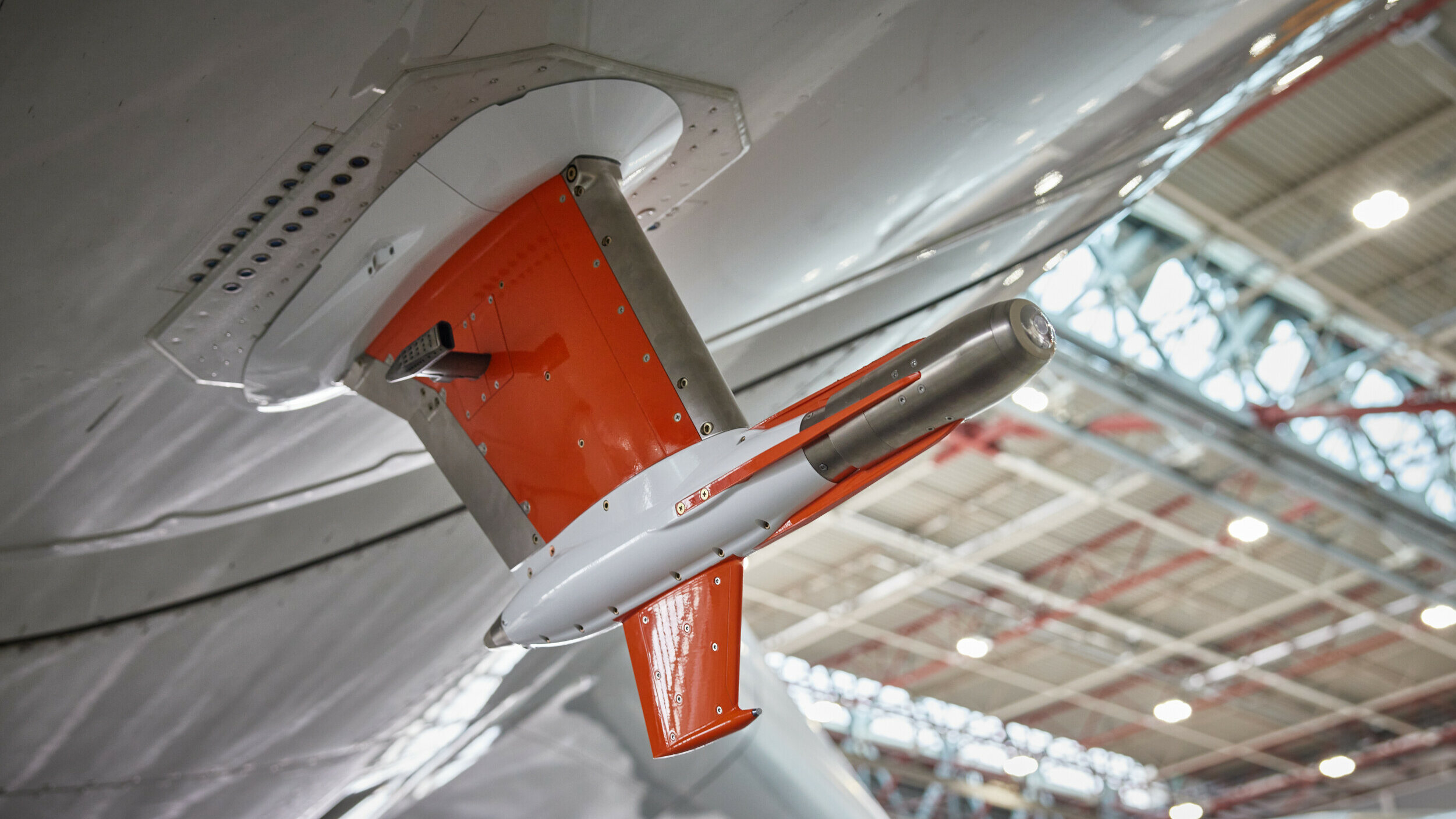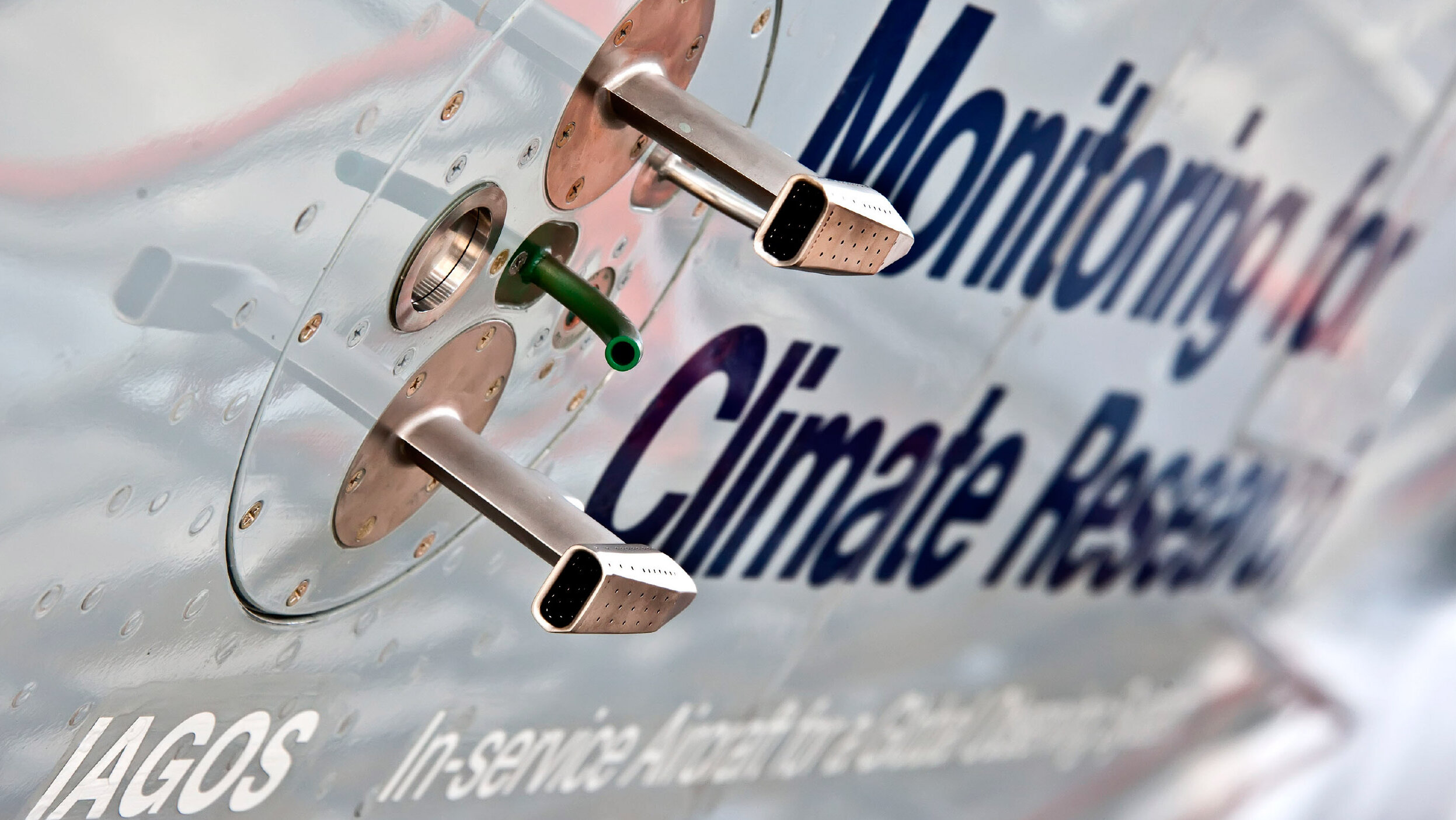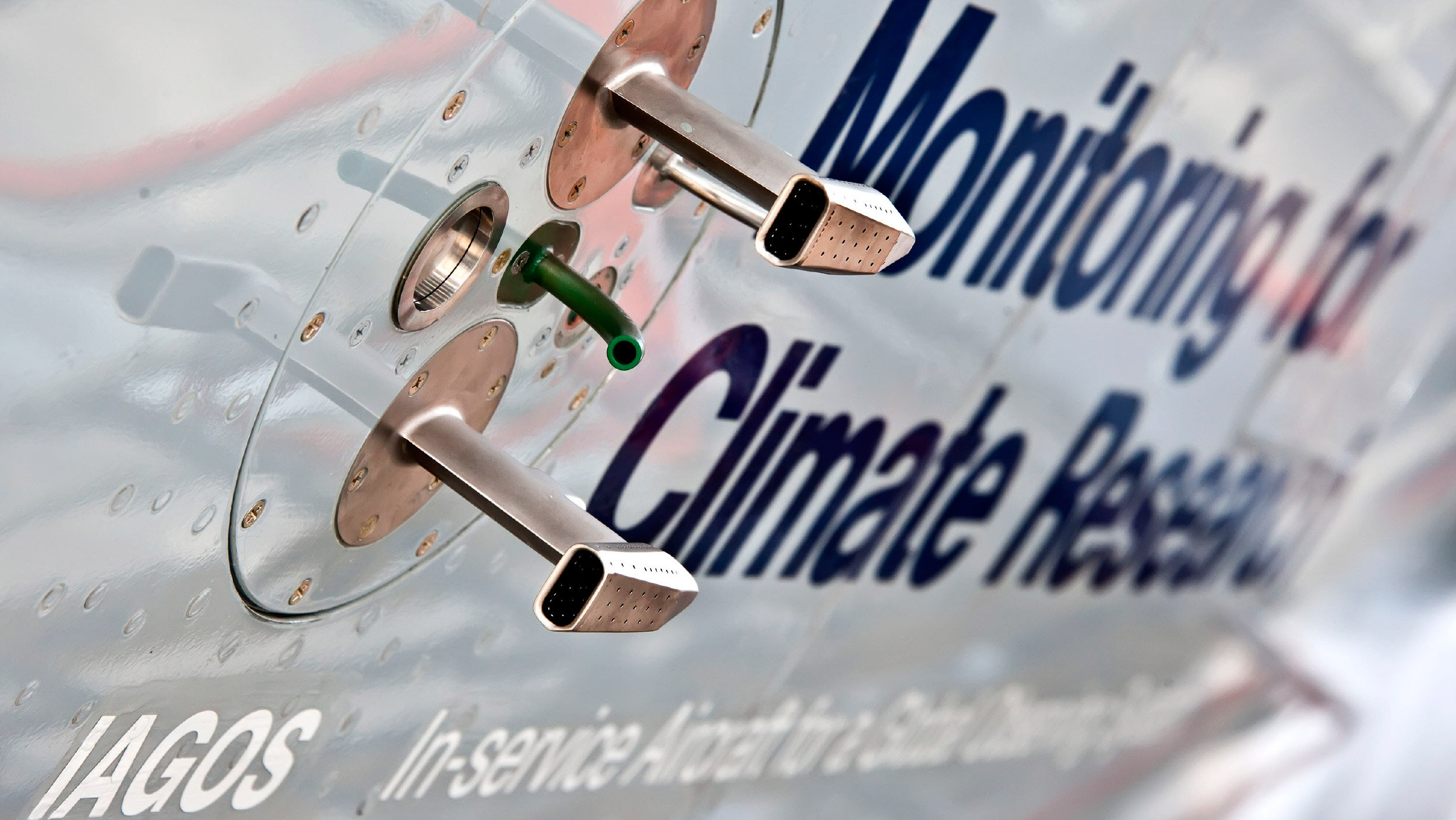With its measurement flights on regular passenger flights, the Lufthansa Group supports the European research infrastructure IAGOS (In-service Aircraft for a Global Observing System) with its two sub-projects IAGOS-CORE and IAGOS-CARIBIC (Civil Aircraft for the Regular Investigation of the atmosphere Based on an Instrument Container). Lufthansa is thus making a valuable contribution to climate research, which can use these unique data to assess and improve the performance of current atmospheric and climate models and thus their predictive power for the Earth's future climate. The special feature: Climate-relevant parameters can be recorded in the tropopause region (at an altitude of nine to thirteen kilometers) with much greater accuracy and temporal resolution on board the aircraft than with satellite-based or ground-based systems.

IAGOS-CARIBIC
Since 2004
Objective
Basic research to help understand the Earth’s atmosphere.
Our contribution
The Lufthansa Group has been supporting this research project since 2004, when the Lufthansa Airbus A340-600 "D-AIHE" was equipped with a unique, 1.6-ton measuring container. Between 2004 and 2020, about 500 measurement flights have been completed on selected international routes in the service of climate and atmospheric research. The long-haul aircraft was parked in April 2020 against the backdrop of the effects of the Corona pandemic.
The Lufthansa Group continues to support this important research project:
In a globally unique project, the Lufthansa Group and the Karlsruhe Institute of Technology (KIT) are currently converting the Lufthansa Airbus A350-900 "Erfurt" (registration D-AIXJ) into a flying research laboratory. The aircraft will in the future fly additionally for climate research in its regular scheduled operations.
Results
To date, there have been more than 160 reviewed scientific publications and six articles in the high-ranking journals of Nature and PNAS since 2015. Particularly noteworthy are the results of the eight aerosol measurement instruments, which were able to provide contributions on the effects of volcanic ash particles or from North American wildfires on the atmosphere. In 2014, the CARIBIC flying laboratory was also able to make an important contribution to the detection of three previously undetected chlorofluorocarbons (CFCs), the main contributors to the so-called ozone hole in the stratosphere.
Further information from our project partners:
www.caribic-atmospheric.com

IAGOS-CORE
Since 2011
Objective
Develop a global measurement infrastructure to monitor the Earth’s atmosphere with the help of civil aviation.
Our contribution
The Lufthansa Group's first IAGOS aircraft, the Airbus A340-300 with the registration "D-AIGT," has been in service since July 8, 2011. On this day, in cooperation with Jülich Research Center, Lufthansa became the first airline worldwide to launch this innovative project for the long-term observation of the earth’s atmosphere during scheduled flight operations. In 2015, the Lufthansa Group expanded its commitment to climate research and equipped a second aircraft, the Lufthansa Airbus A330-300 with the registration "D-AIKO," with the IAGOS measurement system. In November 2022, a third aircraft of the Group fleet was retrofitted with measuring instruments: Since then, the Airbus A330-300 "D-AIKE" of Discover Airlines has also been collecting measurement data in the atmosphere.
After each flight, the recorded measurement data are automatically transmitted to the central database of the CNRS (Centre National de la Recherche Scientifique) research center in Toulouse. The findings are freely and openly accessible for global research and are currently used by around 300 organizations worldwide. They help researchers gain new insight into climate development, the composition of the atmosphere and determining long-term changes to make climate models more precise and to improve weather forecasts. The predecessor system, MOZAIC, was also installed on two Lufthansa Airbus A340-300s and reliably collected measurement data in cruise flight until 2014.
Results
In 2013, the German Federal Ministry of Education and Research (BMBF) included the IAGOS project in its national roadmap for research infrastructure. The scientific council appointed by the BMBF believes that continuously recording atmospheric data on a global basis will make it possible to close an important knowledge gap so that more precise climate predictions can be made.
Further information from our project partners:
www.fz-juelich.de
www.iagos.org

AMDAR
Aircraft Meteorological Data Relay
Since 1999
Objective
Collection of meteorological data for daily weather forecasts.
Our contribution
Since late 1999, Lufthansa aircraft have been taking measurements during flights, available worldwide to all national meteorological services and which are directly incorporated into the preparation of weather forecasts.
Results
Improvement of weather forecasting. Replacement of costly radiosonde measurements by individual national weather services.


